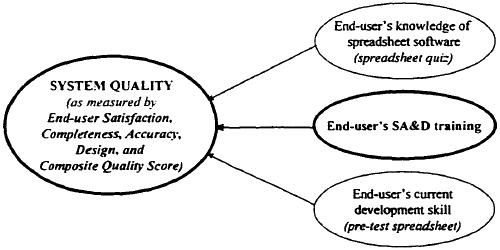Authors
Jennifer Kreie
Abstract
End-user computing is the term used when users outside the information systems (IS) department develop software applications for themselves and/or others.
The ability of end-users to develop their own applications benefits them in many ways. It gives them greater control over their information needs, more timely results, greater flexibility, and fewer problems communicating with the IS department.
There are significant risks associated with end-user computing, however. End-users who develop their own applications usually do not follow formal development procedures. Studies have shown that applications developed by end-users are typically undocumented and frequently contain substantive errors. The possibility of erroneous decisions based on incorrect information has important implications for the end-users and the organizations in which they work.
Many IS managers and researchers believe that training end-users in formal systems development methods will improve the quality of their applications.
The purpose of this study was to determine whether training end-users in systems analysis and design will result in higher quality applications. The research question was: Do end-users develop higher quality applications when they have received systems analysis and design training?
An experiment was conducted to address this question. The experimental design was the untreated control group with pre-test and post-test.
Four aspects of application quality were measured — completeness, accuracy, design, and end-user satisfaction. Training was the manipulated variable. The treatment group received systems analysis and design training and the control group received training on another topic. Covariates measuring end-user computing experience and software expertise were also used in the analysis.
The experiment was conducted through a World Wide Web site. Eight-six (86) end-users completed the experiment and 73 of these were used in the analyses — 36 in the control group and 37 in the treatment group.
One measure of application quality was found significantly related to the type of training end-users received. After the training treatment subjects were more likely to incorporate proper design features, such as documentation, in their applications. The other quality measures — completeness, accuracy, and end-user satisfaction — were not significantly related to the training.
Sample

The current study examined the impact of systems analysis and design training on the quality of applications end-users developed.
The results are not conclusive. Systems analysis and design training did not improve the overall quality of end-users' applications, although proper design did improve.
Publication
1998, Ph.D thesis, University of Arkansas, May
Full article
Not available
